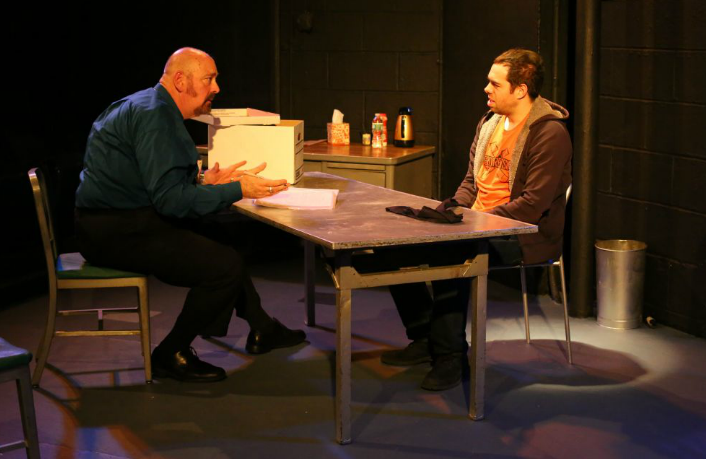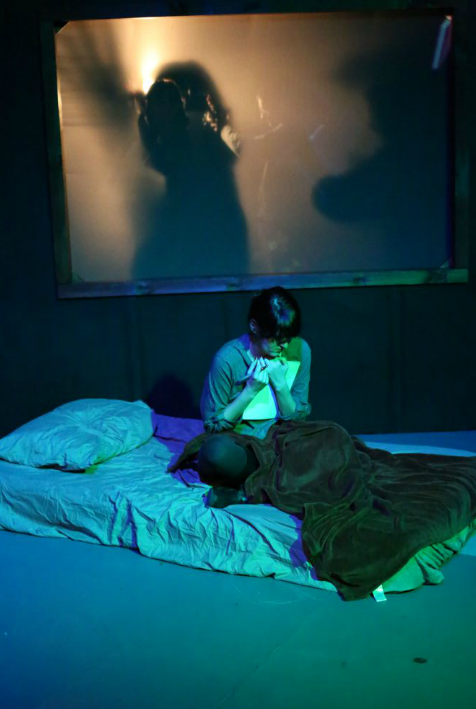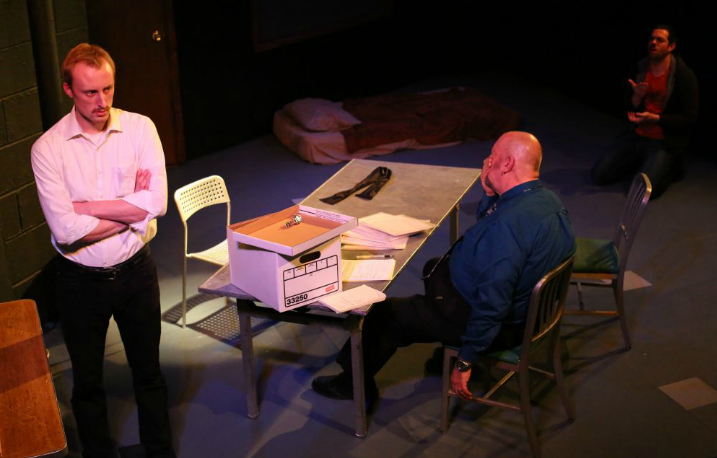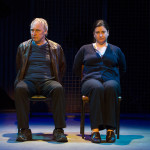The ending of this play is what I’ll start this review with. Not a spoiler. I will not talk about the ending, but of the power of the ending. What a writer would do for his stories to survive. The idea that your work at the end will determine your worth. That family is second to your children, which are the words you put together to form a narrative, and what you are willing to do for them. “The Pillowman” by Martin Mcdonagh is a play about storytelling as much as Neil Gaiman’s “Sandman” is, and in the hands of The Seeing Place Theatre, the story gets a great performance albeit the technical limitations provided by the space.
For those who haven’t read Gaiman’s masterpiece, it is about both the master of dreams Morpheus and the importance of dreams themselves. Through this narrative, Gaiman is set to tell us the birth of storytelling, the idea of dreams as the vessel for the tales to reach us, and the idea that there is a realm where we can find them. McDonagh, on the other hand, brings us to the opposite spectrum. “The Pillowman” layers the explanation differently than “Sandman” does. It is an examination about how stories get built by our personal lives, even if you are born with the talent, it is your experience that will establish your style. The genres. The format. McDonagh challenges Gaiman, dreams come from reality thus making you the creator instead of the vessel and not the other way around. Focusing on this as the overarching theme let’s him delve into the malice of censorship and the flimsy nature of tolerance.
In the play Katurian K. Katurian (Brandon Walker) has been dragged into an interrogation room where he is questioned relentlessly by these two detectives playing the old game of good cop/bad cop. During the interrogation, Katurian finds out that somebody has been killing children using his stories as templates for the murders. The revelation of who it is, and the price to pay for the stories we want to tell and become our legacy and this is what the Katurian character has to deal with for the plot to move forward. In between scenes we are treated to Katurian’s disturbing stories, as if to challenge our sympathy. It’s brilliant of McDonagh and it was fiercely tackled in this production by directors Brandon Walker and Erin Cronican, who put on a strong showing despite the production limitation. And I mention the limitations, because the production itself calls for a bigger stage. The massive journey is hard to sit through when in an intimate space, but that’s the effect that it wants, that it needs. But when up close it does create a certain level of revulsion which audiences may feel more uncomfortable than impressed. This is not to say the production values were bad, oh no! On the contrary, I’m trying to say that they took a play that would be terribly hard to put on no matter what, and succeeded at making a good production in a theater which worked against them for that. The stage was put together in a satisfactory way so both wings could enjoy and follow the play. The sounds were strong, and we could hear them despite the awful music coming through from the place next door. But just as in “Gidion’s Knot,” it’s the performances that shine throughout.
The Seeing Places is a company that prides itself in its acting style, and I can see why. Despite one weak link in the ensemble, the production still captivated me mostly through the interactions with these characters. Brandon Walker, pulling a double duty here, plays the main character with such agony that the sympathy is gained no matter how abhorrent his fiction is, because we know how much more vile his backstory was. But this is Daniel Michael Perez and Logan Keeler’s show. Their arches allow Katurian to express the importance of stories, their place in the universe, and the importance of keeping them alive. It also helps that their work was phenomenal, and was enhanced by the chorus that serve as the figures to Katurian’s work. I may not agree with having them as much as they were on stage, but that’s a personal preference. What wasn’t a preference was John D’Arcangelo as Detective Tupolski, whose performance seemed to be for another production. His actor’s voice, movement, even his lines, sounded as far from the organic performances this ensemble construct, instead bogging down the scenes he was in with a style that did not fit with the rest.
The Seeing Place Theater continues to impress me with their thespians. The productions I saw of theirs had flaws, yet the courage presented in stage elevated both. One from a sub-par script, the other from lacking the grandeur the story asked for. Both convinced me to definitely recommend this bold company. “The Pillowman” runs in rep with “Gidion’s Knot” through Sunday. If I would recommend one, I would say Gidion’s, just because it fits The Clarion Theatre more than Pillowman, but Pillowman is by far the best script of the two. Your choice, but I hope you see one, it would be your mistake not to.
PS: If you are hungry before going to the shows, I recommend the cozy and delicious Handcraft Kitchen and Cocktails around the corner from the theater. Definitely added to two incredible nights.
Out of four stars:
Twisted Talk: Have you seen any of The Seeing Place Theater’s shows before? Which of the two shows do you want to see more? Discuss below!












